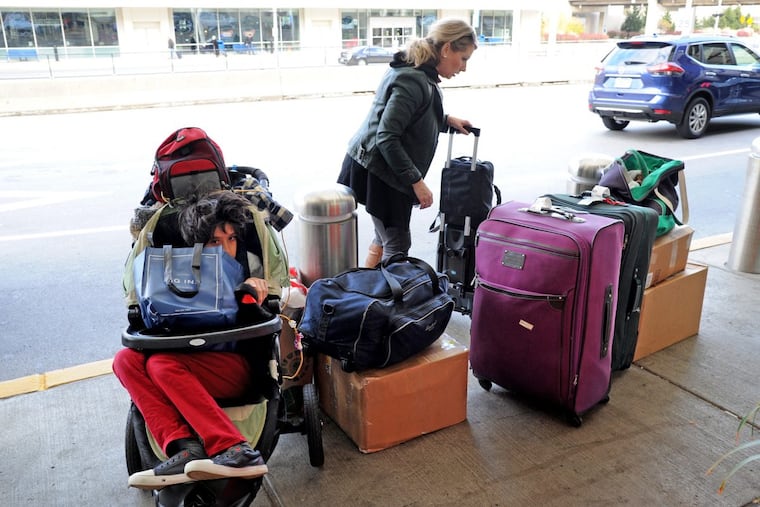American, Delta and Alaska Airlines put limits on 'smart bags' starting Jan. 15
American, Delta and Alaska airlines said early next year the only "smart" luggage allowed on planes must have removable lithium-ion batteries for safety reasons. United Airlines expects to announce its new bag policy soon.

Smart bags are the latest innovation in luggage, with features including GPS tracking, electronic locks, and the ability to charge devices such as laptops and phones.
Only trouble is, they soon may not be acceptable to major airlines unless those batteries can be removed.
Just ahead of the holiday season, three airlines announced that starting on Jan. 15, they will no longer accept so-called "smart" bags or smart luggage that does not have removable lithium-ion batteries, due to their potential to overheat and pose a fire risk during flight.
American, Delta and Alaska airlines all announced that smart bags with removable batteries will still be allowed if the battery can be removed at the gate and taken into the cabin. United Airlines said Monday it would announce a policy soon.
Smart bags have grown in popularity, and are expected to be a popular holiday gift. But smart bags with built-in lithium-ion batteries pose a risk in the cargo area at 30,000 feet, airlines say. In the future, only bags with removable batteries will be allowed to fly.
"We just want to make sure that if people are going to buy smart bags, they ask the question: Is the battery removable?" said American Airlines spokesman Ross Feinstein. "And if it is, it's more than welcome to fly on American."
Bluesmart, a travel technology company with more than 65,000 "smart" suitcases around the world, said it was "saddened" by the changes, which it called a "step back" for travel. The company said it will meet with airlines to make sure its products will be exempt. Bluesmart bags do not have removable batteries, a company spokesman said.
Delta, American, and Alaska said on their websites that if the batteries cannot be removed, the bags will not be allowed on planes.
The Federal Aviation Administration said in July that spare lithium-ion batteries, and portable electronic devices, should be in passengers' carry-on bags and not in checked baggage. If a battery overheats and catches fire, it's easier to detect and extinguish in the cabin.
The International Air Transport Association (IATA) defines smart bags as luggage containing a lithium-ion power bank that allows charging of electronic devices, GPS tracking, Bluetooth, radio-frequency identification (RFID) and Wi-Fi capability, electronic baggage tags, and electronic locks.
Some smart bags with a lithium-ion battery, motor, and tracking device allows the bag to self-propel and "follow" the owner, the airline group said. Other bags with a motor can be used as personal transportation devices, as stand-up scooters or sit-on vehicles.
In 2015, Delta and other airlines banned hoverboards over similar battery concerns.
"Many smart bag manufacturers advertise their products as being approved by the Federal Aviation Administration or Transportation Security Administration, which may give customers the false impression that all smart bags are accepted for transport," Delta said on its website. "To date, neither the TSA nor FAA have endorsed a smart bag as approved."
Bluesmart said in a statement that its products meet all Department of Transportation, FAA, and other standards. The latest regulations propose "tighter requirements than the industry regulators," the company said, and vowed to meet with the airlines "to make sure that your Bluesmart will be exempt from such rulings."
With the proliferation of powerful lithium-ion batteries, and cases of smartphones and devices overheating in flight, Delta said that last year it has equipped all aircraft with in-cabin containment bags in the event of a fire on board.
American, which operates 390 daily flights in Philadelphia, said that its flight crews are trained to handle a fire in the cabin. "We have nothing against smart bags," Feinstein said. "We just want to make sure that if someone has to check the bag at any time, that they can remove that battery."